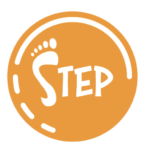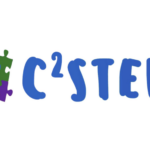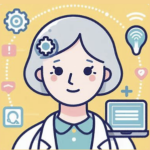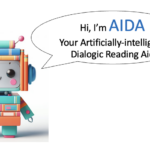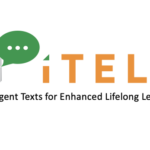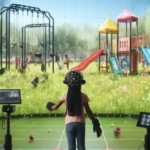Author
GEM-STEP: Science through Technology Enhanced Play
Jun. 20, 2024—In the Science through Technology Enhanced Play (STEP) project, we are investigating how embodied play among elementary school students can be used to help them understand scientific phenomena (e.g., the working of forces, complex behaviors of bees). Our most recent application is called GEM-STEP where the GEM stands for Generalized Embodied Modeling. This system allows...
C2STEM: Collaborative Computational STEM
Jun. 20, 2024— C2STEM (Collaborative Computational STEM) is a collaborative problem-solving environment where students work in pairs to develop computational models of scientific processes such as Physics and Marine Biology. It is a multi-institutional project aimed at designing and developing a learning environment that integrates visual programming with domain-specific modeling languages (DSMLs). This novel computational paradigm promotes discipline-specific...
Betty’s Brain
Jun. 20, 2024—Betty’s Brain is a computer-based learning environment that utilizes the learning-by-teaching paradigm to engage students in learning about science topics. Students teach a computer agent named Betty by constructing a causal model of the systems or processes relevant to the topic (e.g., ecosystems, climate change, thermoregulation). This requires students to be responsible learners and teachers,...
Preliminary design of a generative AI-based intelligent assistant for dementia care
Jun. 12, 2024—Dementia presents a pressing challenge significantly impacting cognitive functions of millions of persons, eventually leading to their complete reliance on care partners. While cognitive decline is inevitable in dementia, active engagement in preferred daily tasks can slow down its progression and support relearning. Our project aims to develop a framework for personalized information retrieval and...
AI-Based Music Tutor
Jun. 12, 2024—The very first concepts that a person learns when they pick up a new instrument are the names of pitches, how those pitches are annotated musically, and how to manipulate their instrument to reliably produce a pitch corresponding to each note. To date, this type of note- and pitch-based knowledge represents the extent of mainstream...
BeatBlox
Jun. 12, 2024—BeatBlox is the latest extension to the NetsBlox block-based programming environment developed at Vanderbilt University. NetsBlox was built on top of the open-source codebase of Snap! from UC Berkeley and was specifically designed to teach cutting edge computing concepts such as distributed computing, the Internet of Things, and cybersecurity to novices. It opens the internet...
AIDA: An Artificially Intelligent Dialogic Reading Aid
Jun. 12, 2024—Literacy has long been recognized as fundamental to academic success, as well as broader economic and health-related outcomes for both individuals and society. Whether due to developmental disability or socioeconomic impediments, as many as 40% of children enter Kindergarten a full year behind in fundamental language and literacy skills (Fielding et al, 2019). Once behind,...
Math Misconceptions Data Science Competition
Jun. 12, 2024—We are developing annotation schemes to detect potential misconceptions that underlie students’ errors in their math responses and annotating large datasets of students’ math responses. A data science challenge will then invite teams to develop algorithms that automatically detect misconceptions in the responses. These algorithms could then be used in digital learning platforms. Collaborate with...
iTELL: intelligent Texts for Enhanced Life-long Learning
Jun. 12, 2024—The iTELL (intelligent Texts for Enhanced Life-long Learning) framework ingests static texts on any content do-main using a custom content preparation system that guides content editors through the process of formatting the text and reviewing AI-augmented content prior to publication. Text content in iTELL is augmented with keyphrase generation (used for writing feedback) and short...
Immersive VR Cave
Jun. 12, 2024—The project is designed to create an immersive environment for testing sensory development in children from birth until young adulthood. The environment will be a cave that will allow high resolution video projection via four 4k projectors, spatial audio via an ambisonics array of 25 speakers, and tactile and haptic stimulus delivery via a series...
